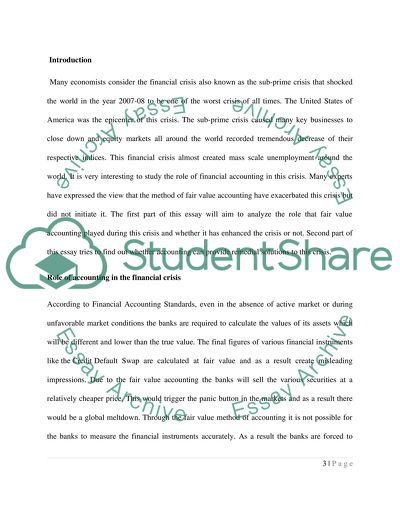Cite this document
(“Accounting is not a root cause of the financial crisis, but it has an Essay”, n.d.)
Retrieved from https://studentshare.org/finance-accounting/1466147-accounting-is-not-a-root-cause-of-the-financial
Retrieved from https://studentshare.org/finance-accounting/1466147-accounting-is-not-a-root-cause-of-the-financial
(Accounting Is Not a Root Cause of the Financial Crisis, But It Has an Essay)
https://studentshare.org/finance-accounting/1466147-accounting-is-not-a-root-cause-of-the-financial.
https://studentshare.org/finance-accounting/1466147-accounting-is-not-a-root-cause-of-the-financial.
“Accounting Is Not a Root Cause of the Financial Crisis, But It Has an Essay”, n.d. https://studentshare.org/finance-accounting/1466147-accounting-is-not-a-root-cause-of-the-financial.


